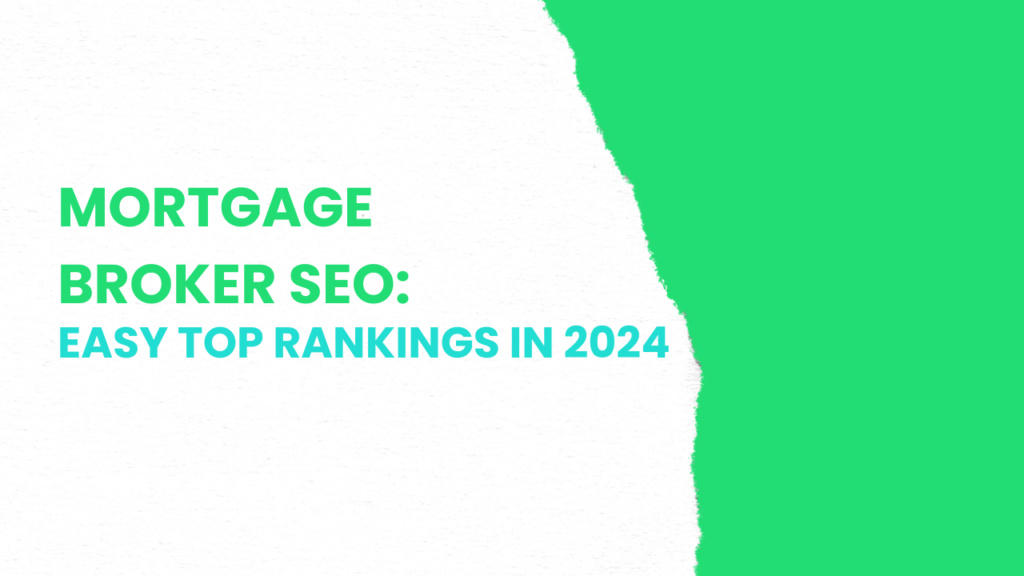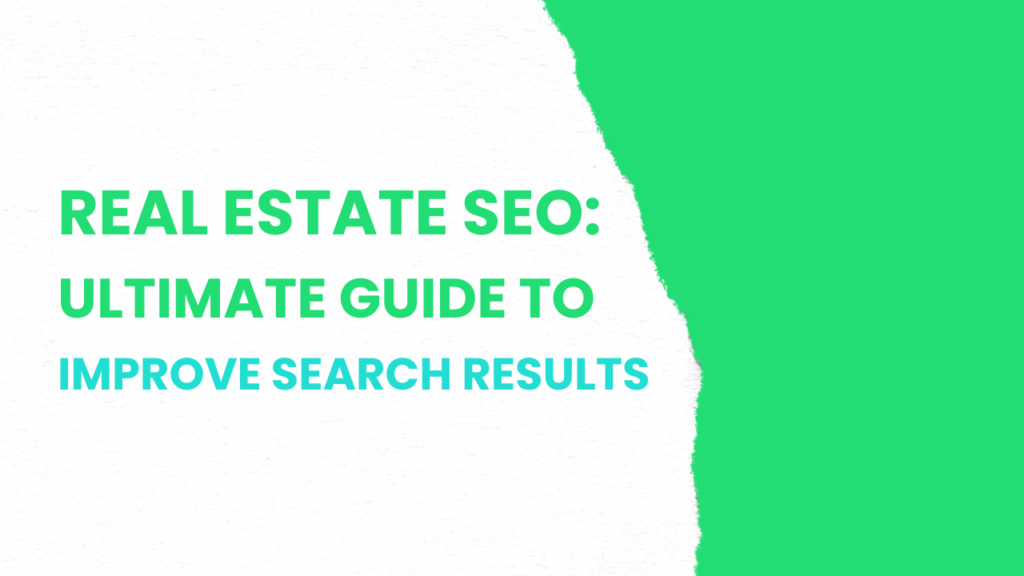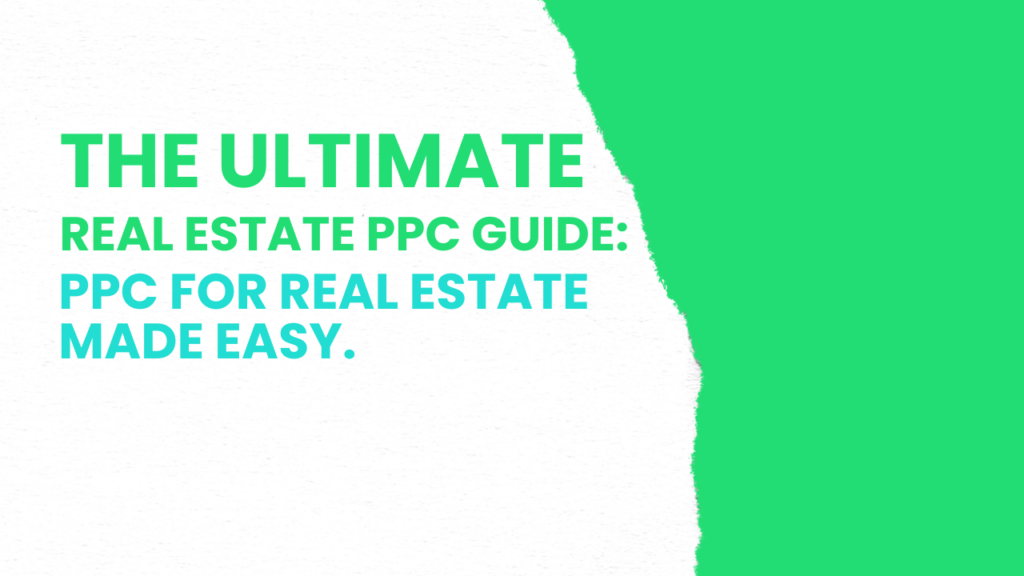Small Business SEO is your secret sauce to making your website pop on search engine results, particularly for the little guys in the business world. It’s all about strategizing and tweaking your online presence to reel in more organic traffic and connect with folks looking for what you’ve got.
For small, local businesses optimizing their online presence, this is a game-changer. Ranking higher in the search term results isn’t just about getting seen; it’s about leveling up in the competitive arena and fueling your business growth.
Navigating the Maze: Small Business SEO vs. Local SEO
Dive into the world of SEO, and you’ll find two roads: Small Business SEO and Local SEO. They might seem like twins, but they’ve got their vibes. Small Business SEO is all about casting a wide net, aiming to grab the attention of a diverse crowd far and wide. On the flip side, Local SEO is like your neighborhood watch. It zeroes in on the locals, ensuring your business pops up when nearby customers are on the hunt.
Cracking the Code: Small Business SEO and Local Search Factors
When you play the small business SEO game, certain things tip the scales in your favor. Imagine a giant magnet pulling your business toward those searching for you. Factors like how close you are to the searcher, ensuring your business’s name, address, and phone number are the same everywhere online, and getting your business listed in the correct categories with the right keywords are all part of the magic.
Don’t forget the power of good reviews and keeping your Google Business Profile page buzzing with activity. These are your golden tickets to shining in the local search spotlight. For example, when we searched for “dentist Orlando” the top results were all Google Business Profiles that were highly optimized with reviews and business details:
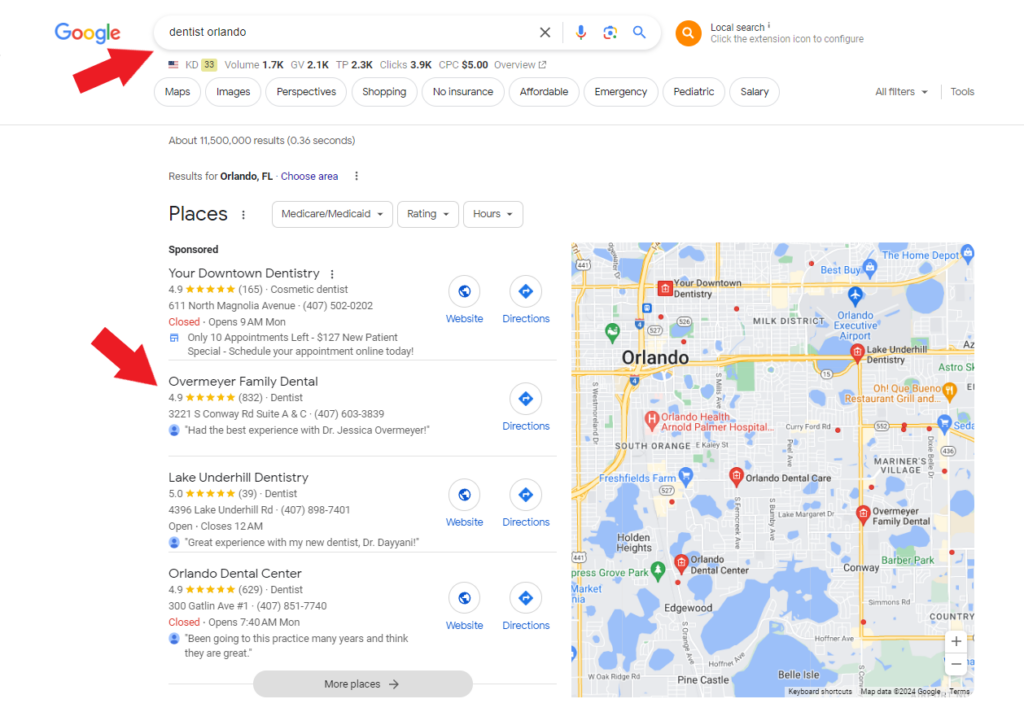
Why SEO for Small Businesses is a Game-Changer
Up Your Awareness Game
Small Business SEO is like having a megaphone for your business. It amplifies your presence on search engine results, making sure more eyeballs land on what you offer. Bagging a spot on the first page of search results is like striking gold. Whether you’re a roofer, mortgage broker, real estate agent, real estate investor, property manager, physical therapist, or run an assisted living facility, more visibility means more visitors, inquiries, and, fingers crossed, many new customers.
Traffic Jam in the Best Way
A stellar SEO strategy is like having a traffic magnet for your website. It’s all about climbing the search result ranks and pulling in visitors organically. It isn’t just about numbers; it’s about inviting potential customers to your digital doorstep, setting the stage for leads, and turning those curious clicks into loyal customers.
Connect Early, Connect Right
For small businesses, catching your audience’s eye early on is crucial. With a sharp SEO strategy, you can tailor your website and content to whisper directly to your ideal customers. It’s about building trust from the get-go, understanding what makes your audience tick, and delivering content that strikes a chord.
Stay Ahead of the Pack
A robust SEO strategy can be your secret weapon in the small business arena. It’s not just about being visible; it’s about shining brighter than the rest. A savvy SEO approach can help you snatch a larger market pie, marking your territory as a trusted and reliable choice in a crowded space
SEO Won’t Break the Bank
Here’s the kicker: Small Business SEO won’t make your wallet weep. SEO is the savvy entrepreneur’s dream, unlike flashy marketing moves that demand big bucks. It’s all about intelligent tweaks and strategic content that draw in organic traffic with no ad budget required. SEO is your budget-friendly ally for small businesses watching every penny, letting you rub shoulders with the big guns without spending on paid advertising.
Get Your FREE eBook +
Traffic Projection Analysis
+ Website Quality Audit!
7 SEO Tips for Small Businesses
Tip 1: Mastering the Strategy Game Is all About Keywords
A strategic plan is necessary for small businesses eager to nail their SEO efforts. Dig deep into keyword research, pinpointing those golden phrases that’ll draw organic traffic. Also, get crafty with analyzing SERP competitors. Knowing their playbook can lead you to ace yours. Leverage tools like Google Keyword Planner and SEMrush for this intel. A solid plan isn’t just about strategy; it’s about connecting the right dots for your SEO journey.
Understanding Keywords: The Heart of SEO
Grasping the essence of keyword research is non-negotiable for small businesses. It’s like learning your audience’s secret dialect. Dive into this research, and you’ll discover the most sought-after terms tied to your offerings. This insight isn’t just gold for your content and meta tags, boosting your SERP standings. It also opens doors to untapped niches and opportunities you might’ve missed.
Competitor Analysis: Know Your SEO Rivals
Staying a step ahead in the SEO race means keeping a close watch on your competitors. Peek into the SERPs and dissect the strategies of those outshining you. What’s in their content? Which keywords are they betting on? Are any backlink strategies up their sleeve? Pin down these patterns and weave them into your strategy. This competitor espionage is your ticket to identifying gaps and catapulting your business.
Keyword Research Tools: Your SEO Arsenal
Are you embarking on your keyword quest? A suite of tools awaits. Google Keyword Planner shines for insights into keyword search volumes and competition. But don’t stop there. SEMrush, Moz Keyword Explorer, and Ahrefs are also in your corner, ready to dish out relevant keywords and competitive analysis. Test different tools and find your perfect match, fitting your SEO needs and budget.
Tip 2: Crafting High-Quality Content that Clicks
Engaging your customers is an art, and content is your canvas. Know your audience like the back of your hand. What ticks their curiosity? What solutions are they scouting for? Tailor your content to quench their thirst for information. Be it through insightful blog posts, snappy articles, videos, or infographics. Strike a chord with a conversational tone, nudging them to interact, share feedback, and feel part of your community.
Tip 3: The Technical SEO Tango
Technical SEO is like the stage crew of a theater – vital yet often backstage. For small businesses, it’s about tuning the strings of your website to perform smoothly. Regular audits, a keen eye on site structure, and tackling those pesky SEO snags make sure your website is in tip-top shape. This backstage magic boosts your site’s speed, makes it friendly for mobile browsing, and ensures search engines easily navigate it. The result? A standing ovation in the form of top rankings and happy visitors.
Troubleshooting SEO
Imagine your website is a machine. Even small cogs out of place, like broken links or slow pages, can jam the whole system. Regular check-ups using tools like Google Search Console are your routine maintenance. They help pinpoint and fix those hitches, keeping your website’s performance smooth and in tune with SEO standards. Below is an example of our website’s health provided by the Ahrefs Site Audit tool:
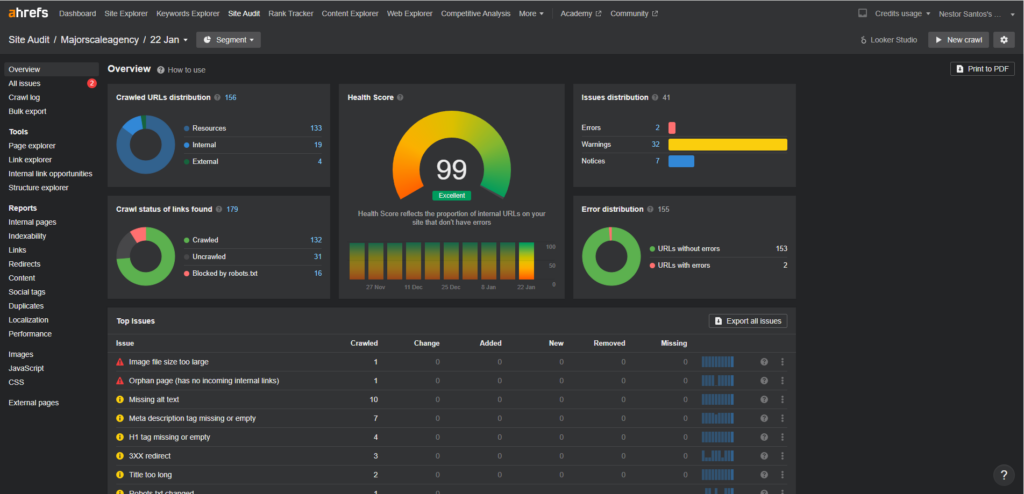
Site Structure: The Backbone of Your Website
Your website’s structure is its skeleton – it must be solid and well-organized. A clear layout, logical URLs, and a navigable menu don’t just make life easier for your visitors. They also help search engines crawl your site more efficiently. Take the time to get the search engine optimization right for your local business; a well-structured website stands tall and confident in the crowded world of the internet.
Tip 4: On-Stage with On-Page SEO
On-page optimization is your website’s moment in the spotlight. For local businesses, it starts with crafting search term-specific title tags and meta descriptions that sing your content’s theme. Then, ensure your business website’s content is not just a chorus of information but also engaging and well-arranged to optimize user experience. Don’t forget to sprinkle in some schema markup – it’s like the stage directions for search engines, helping them better understand your site’s content.
Title Tags and Meta Descriptions: Your Billboard
Think of title tags and meta descriptions on your business website as your billboard on the search engine results page. They need to catch the eye, convey the essence of your content, and invite your audience in. Including the right keywords here is like having a spotlight – it ensures your audience sees your billboard from afar in the crowded highway of search results.
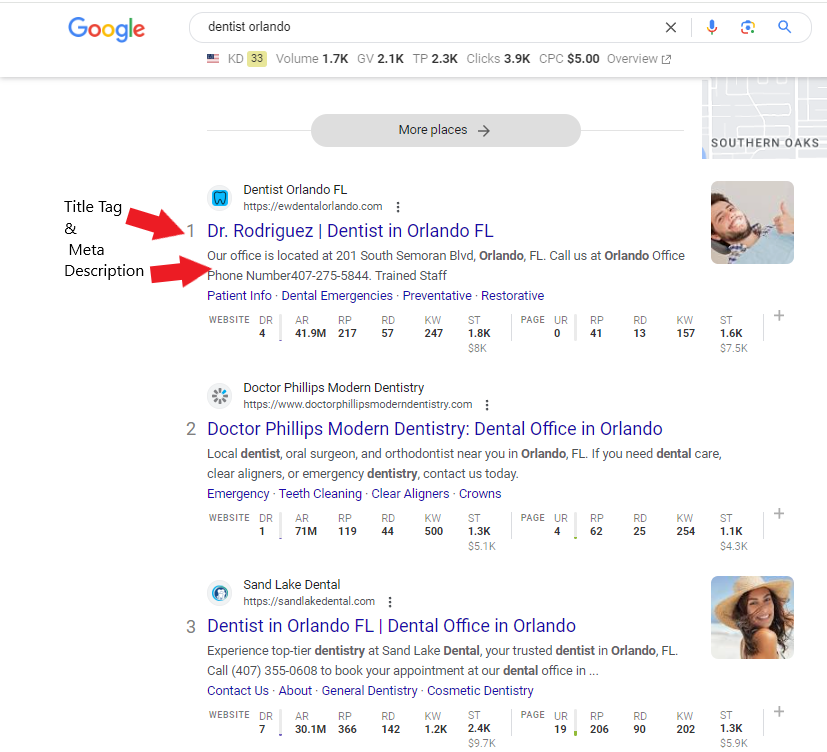
Content: The Heart of Your Website
Your local business website’s content is its heartbeat. It needs to pulse with relevance, resonate with quality, and flow with clarity. Use keywords naturally, format your content for ease of reading, and remember to keep the conversation fresh with regular updates. Content helps you keep your audience engaged and your rankings robust.
Schema Markup: The Secret Decoder Ring
Schema markup is like a secret decoder ring for search engines. It’s a behind-the-scenes code that helps search engines understand the context of your content. Adding schema markup is like providing a guidebook to your site, making it easier for search engines to display your content effectively in search results.
Tip 5: The Art of Off-Page SEO
Off-page SEO is about building your website’s reputation beyond its pages. It’s like networking at a grand ball. Crafting backlinks from respected sites to your business website is like getting endorsements from the VIPs. A vibrant social media presence is your ongoing dialogue with the world, boosting your brand’s visibility and engagement. This off-site dance is pivotal – building your site’s authority and attracting more visitors.
Building Backlinks: The Currency of Credibility
Backlinks are the currency in the SEO realm – the more reputable sites link to your site, the richer your site’s credibility. It’s about creating content worth a shout-out and reaching out for guest posting or influencer collaborations. Each quality backlink is a nod of approval, raising your site’s profile in the search results.

Social Media: The Pulse of Engagement
In today’s digital world, social media is where the buzz is. It’s not just about posting content; it’s about sparking conversations, sharing insights, and building a community. As you engage and interact on these platforms, you’re not just promoting your content but enriching your site’s relevance and reach. Remember, in the dynamic world of search engine optimization, being social is not just about being seen; it’s about being significant.
Tip 6: Mastering Local SEO: Perfect Your Google Business Profile
Local SEO is like your business’s digital megaphone in the neighborhood. It ensures your presence is known and felt in local search results. Crafting and refining your Google Business Profile and securing your online listings are spot-on and can significantly boost your visibility to the folks around town. Keep a keen eye on these listings and embrace customer reviews. These steps are not just about getting noticed; they’re about building trust and rapport with your local clientele.
Why Local SEO Packs a Punch
Local SEO is a game-changer for small businesses aiming to become local legends. It’s not just about popping up in searches; it’s about connecting with your community at the right place and time. This pocket-friendly yet powerful strategy drives awareness and traffic straight to your doorstep. Adopt local SEO and watch your business become a household name in your area.
Crafting Your Google Business Profile
Picture your Google Business Profile as your business’s digital storefront. Here’s how you make it inviting:
- Register or login at Google Business Profile.
- Fill in the details: your business’s name, address, phone number, and website.
- Choose the categories that best describe your business.
- Showcase your place with striking photos.
- Encourage your happy customers to leave reviews to help your local business rank higher on the search engine results page.
- Stay active by regularly updating your information and responding to customer reviews.
- A polished Google Business Profile is like a beacon, guiding local customers your way.
Creating Relevant Online Listings
Imagine your business popping up in all the right places online. That’s what creating relevant online listings does. It’s like planting signposts across the digital landscape. Whether in local directories or industry-specific sites, ensure your business information is consistent and accurate. Listings aren’t just good for your SEO; they make it a breeze for potential customers to find and trust your business.
Keeping Tabs on Local Listings
Monitoring local listings is like keeping your digital garden well-tended. Regular checks and updates ensure your business information is accurate and harmonious across platforms. It’s also your chance to engage with customer reviews and shape your online reputation. Stay vigilant; your digital presence as a local business will flourish, drawing in more customers.
Encouraging and Responding to Reviews
Inviting and responding to reviews is like having a heart-to-heart with your customers. It shows you’re all ears and you care. Spark this dialogue by delivering standout service and nudging customers for their thoughts. Address feedback promptly, celebrate the positives, and gracefully tackle the negatives. This open channel builds trust and gives your local SEO a healthy boost.
Get Your FREE eBook +
Traffic Projection Analysis
+ Website Quality Audit!
Tip 7: Keeping Score with SEO: Measure, Monitor, and Magnify
Measuring your SEO performance is like keeping a pulse on your digital health. Set up Google Analytics and Google Search Console to get a complete picture of your website’s traffic, user behavior, and search performance. Regular SEO check-ups help you spot and fix issues, ensuring your site stays in top form. And don’t forget to keep an eye on your rankings; they’re how you gauge your SEO strategy’s success and fine-tune your moves.
Setting Up Google Analytics and Search Console
Equip yourself with Google Analytics and Search Console, your digital stethoscopes. These tools let you tune into your website’s performance, from visitor behavior to search rankings. They’re your guideposts for navigating the SEO journey, providing the insights you need to steer your strategy toward success.
The Routine SEO Health Check
Regular SEO audits are like routine check-ups for your website. They keep your site fit and in sync with ever-evolving SEO standards. Dive into these audits to scrutinize your website’s performance, explore new keyword opportunities, and polish your on-page and off-page strategies. Staying proactive with these audits keeps your business ahead in the SEO race.
Ranking Watch: Your SEO Scoreboard
Keep a close watch on your rankings – they’re the scoreboard of your SEO game. Tools like Google Analytics, Moz, or SEMrush are your scorekeepers, offering a clear view of your keywords’ performance. Regular checks give you the insight to celebrate victories, learn from missteps, and strategize your next winning move.
Wrapping Up Your SEO Journey
Remember that SEO is not a sprint; it’s a marathon. Quality content, a pulse on SEO trends, diligent monitoring, and a dash of patience are your companions on this journey. Stay committed, stay curious, and watch your small business thrive in the digital realm. The path to SEO success is a journey well worth embarking on.
FAQ
How much should a small business pay for SEO?
For small ventures, the tab might run anywhere from $500 to a hefty $5,000 monthly. More of a project gig? That could set you back $5,000 to $30,000. And if you’re thinking about an hourly consultant, you’re looking at $80 to $200 every hour. The key? Make sure your SEO spend is in line with your marketing budget and that it’s geared to hit your goals.
Can I do SEO for my own business?
Yes, it’s possible to implement SEO strategies for your business independently, especially if you have a tight budget or wish to understand the process firsthand. To get started, focus on learning the basics of SEO, including keyword research, on-page optimization, content creation, link building, and analytics. Plenty of resources, online courses, and tools are available to guide you. However, as SEO can be time-consuming and complex, consider eventually consulting an SEO professional or agency to refine your strategy and handle more advanced tasks.
How to select the best seo company for small business
Nailing the right SEO team is like hitting the jackpot for your online hustle. Here’s how to play your cards right:
Set Your Targets: Pin down what you’re after with SEO, be it more clicks, top rank for certain words, or more sales.
Ask Around: Get the lowdown from your business buddies or hunt for top-notch reviews.
Check Their Scorecard: Snoop around their past wins, case studies, and happy client shout-outs.
Know-How Matters: Make sure they get your industry and what your business is up against.
Strategy Talk: A solid SEO crew should lay out their game plan and how it gels with your ambitions.
Budget Check: Ensure their price tag fits your wallet and watch out for sneaky extras.
Clear as Day: Go for folks who keep you in the loop and dish out regular, no-jargon updates.
How much does SEO cost for a startup?
For startups, the SEO budget is more like a balancing act. You’re probably counting pennies but still wanna pack a punch. Early on, you might earmark $500 to $2,000 monthly for SEO. But keep your eyes on the prize; as your startup blooms and the game gets fierce, you’ll likely need to up the ante. Start with the essentials: digging up the right keywords, crafting content that hooks, and laying a solid foundation for your website. Then, as your venture takes off, you can level up and dive deeper into the SEO pool.


